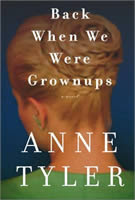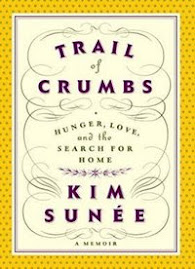I really, really liked this novel - his ability to craft characters reminded me of Chekhov (my ultimate favorite writer). He has a very Arabic quality to his narrative, but he clearly is also very adept at Western genres. He clearly (and probably the translator) explain certain cultural things I would otherwise miss in a way that does not detract from the story.
Set during World War II in a neighborhood in Cairo, we are introduced to a variety of characters and their relationships.
Some people are warm and considerate, but most others have quirks that go to serious personality flaws (like the hashish addict grandfather who hooks up with boys). The most interesting part is how they all interact with each other (with genuine affection, with disdain, with manipulation, etc.), and how that alley really is the extent of their world for most.
The character I was most fascinated with was the orphan who leaves her foster mother to become a prostitute rather than marry the ordinary man she agreed to - leaving behind a life of children and domesticity (good and bad) for a life of riches and adventure. Sometimes I wonder - if in that situation, which would I choose? I'm not sure my grandmother would like my answer.
Sunday, March 7, 2010
Interracial Intimacies by Randall Kennedy
I don't know what I expected, but it far surpassed my expectations.
Last year I gave this book as a gift to a man I was seeing. He showed me a book he had about how interracial dating is bad, and I wanted him to have some more balance (maybe a personal stake in that?). So, upon recommendations, I got Interracial Intimacies. And then I borrowed it from him.
Kennedy is a Harvard Law prof (and a Virgo!) who appears to think both legally and sociologically - and I appreciate his scholarship from both angles. His arguments are well thought-out, he is clear in what they are, and he backs them with rigorous cases and research. His primary focus is on black-white relationships, though he includes a few other examples.
First he looks at interracial relationships, mostly marriage, historically in the United States and contemporarily. He believes they should be encouraged, and he says that clearly. And as a black man married to a black woman (though she died recently, sadly), good for him. He cites the problems of cultural segregation and shows how interracial dating and marriage can overcome a good deal of that.
I will say that I wish he had focused on interracial friendships, because I think that's even more important. I may have lust in my heart for a man of a different race, but that doesn't mean I appreciate and respect him. Friends? Real friends? Definitely. But, of course there's no documentation of interracial friendships like there are of marriage, births, anti-miscegenation laws, etc.
Then he turns to interracial adoptions, and I think he makes really good points. He firmly disagrees with those who think there should be a racial matching preference between child and family, and backs it up. He asserts the most important is a loving, supportive family. He further argues that just because a family is black, it does not mean that they can better help a black child prepare for the world of being black. Again, I think he's courageous to take this stand, and I agree with him.
I do disagree tentatively with his chapter on Native American adoption. He skewers the law on it, and rightly so, but I think he misses some nuances. The reality is that many tribes ARE facing extinction of all linguistic and cultural knowledge, and that is a very different situation than with African-Americans. I don't think the child's safety and well-being should be sacrificed for the good of perpetuating a culture, but I think he needed to better understand the conditions that have made it so - the mandatory boarding schools and other cultural genocide that has transpired.
It's a weighty tome and took me a long time to get through - in part because I was marking it all up with post-its for the fellow to whom I will return it, with my thoughts on the matters. You know, because I'm a Virgo too.
Last year I gave this book as a gift to a man I was seeing. He showed me a book he had about how interracial dating is bad, and I wanted him to have some more balance (maybe a personal stake in that?). So, upon recommendations, I got Interracial Intimacies. And then I borrowed it from him.
Kennedy is a Harvard Law prof (and a Virgo!) who appears to think both legally and sociologically - and I appreciate his scholarship from both angles. His arguments are well thought-out, he is clear in what they are, and he backs them with rigorous cases and research. His primary focus is on black-white relationships, though he includes a few other examples.
First he looks at interracial relationships, mostly marriage, historically in the United States and contemporarily. He believes they should be encouraged, and he says that clearly. And as a black man married to a black woman (though she died recently, sadly), good for him. He cites the problems of cultural segregation and shows how interracial dating and marriage can overcome a good deal of that.
I will say that I wish he had focused on interracial friendships, because I think that's even more important. I may have lust in my heart for a man of a different race, but that doesn't mean I appreciate and respect him. Friends? Real friends? Definitely. But, of course there's no documentation of interracial friendships like there are of marriage, births, anti-miscegenation laws, etc.
Then he turns to interracial adoptions, and I think he makes really good points. He firmly disagrees with those who think there should be a racial matching preference between child and family, and backs it up. He asserts the most important is a loving, supportive family. He further argues that just because a family is black, it does not mean that they can better help a black child prepare for the world of being black. Again, I think he's courageous to take this stand, and I agree with him.
I do disagree tentatively with his chapter on Native American adoption. He skewers the law on it, and rightly so, but I think he misses some nuances. The reality is that many tribes ARE facing extinction of all linguistic and cultural knowledge, and that is a very different situation than with African-Americans. I don't think the child's safety and well-being should be sacrificed for the good of perpetuating a culture, but I think he needed to better understand the conditions that have made it so - the mandatory boarding schools and other cultural genocide that has transpired.
It's a weighty tome and took me a long time to get through - in part because I was marking it all up with post-its for the fellow to whom I will return it, with my thoughts on the matters. You know, because I'm a Virgo too.
Subscribe to:
Posts (Atom)

